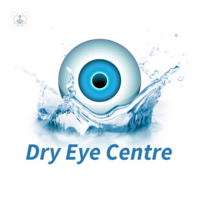Gas permeable contact lenses
What are gas permeable contact lenses?
Gas permeable contact lenses, or GP contact lenses, are rigid contact lenses made of a hard material that is oxygen-permeable. Hence, GP contact lenses are also known as rigid gas permeable (RGP) contact lenses. They provide an alternative option to soft contact lenses which are commonly chosen by many people.
GP contact lenses are made of a plastic material that allows oxygen to pass from the surface of the eyes to the cornea. This provides comfort for your eyes and promotes the health of your eyes whilst you are wearing your lenses.

Why are gas permeable contact lenses used?
GP contact lenses do provide certain advantages over the use of soft contact lenses. Whilst many people believe that rigid contact lenses would be very uncomfortable, this is in fact untrue, as they can provide comparable comfort levels to soft contact lenses.
Benefits of gas permeable contact lenses include:
- Hygiene – GP contacts do not contain water, unlike soft lenses, meaning bacteria are less likely to proliferate and cause infections. They are easier to clean as well and won’t tear or dehydrate.
- Durability – GP contacts do not break or tear as easily so can last up to a year if looked after properly.
- Comfort – GP contacts are custom-made per patient meaning their shape is fitted well to each eye, providing comfort. Whilst there is an initial adjustment to the feel of GP lenses (due to the smaller size of them), this is overcome quickly, and many users claim they cannot feel their lenses when being used.
- Cost – GP contacts last much longer, so they are more cost-effective and do not require regular replacement orders, unlike disposable soft contact lenses.
- Vision – their custom shape means that GP lenses often hold their place better on the eye, providing sharper vision. They do not dehydrate which typically can cause reduced vision when using soft lenses. Lastly, GP lenses can be used for patients with astigmatism who are not eligible for soft contacts.
What else are GP contact lenses used for?
GP contact lenses are also used for the following:
- Presbyopia – this is the normal loss of the ability to focus on an image with age. GP contacts can be made as bifocal or multifocal lenses, meaning they can accommodate different vision problems simultaneously.
- Keratoconus – a condition in which the cornea deforms. GP contact lenses can be worn to help vision and to correct the deformed shape.
- Refractive surgery – GP contact lenses can be used following refractive lens surgery.
- Ortho-K – GP contact lenses may be worn at night to help reshape the cornea and improve vision. This avoids the need for vision-correcting surgery.



